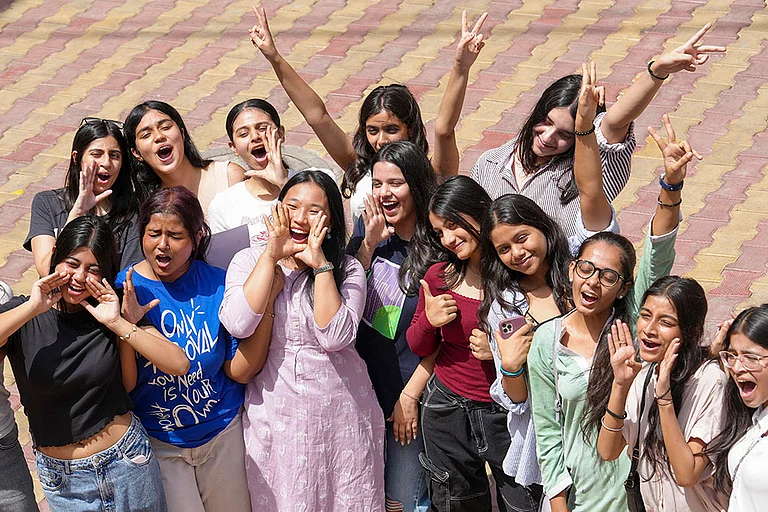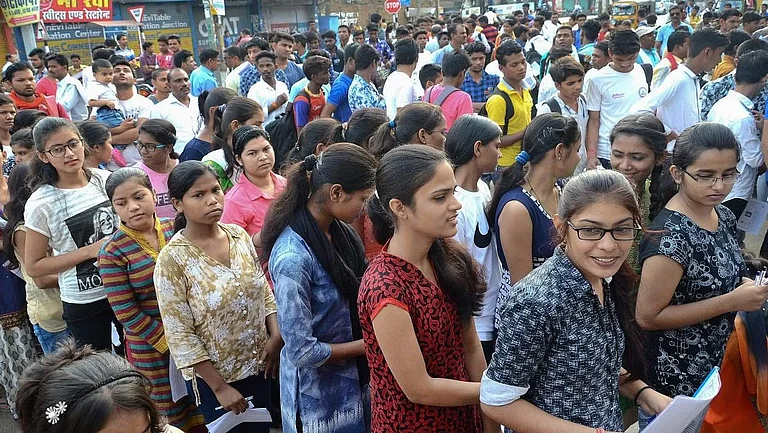What happens to a country like India when a national-level public examination with lakhs of aspirants participating in it suddenly reveals cracks in the education system?
The dreams of close to 13 lakh aspirants were stalled when a flurry of reports of malpractices, exam postponement and cancellations emerged around medical entrance NEET and other examinations conducted by the National Testing Agency (NTA). Investigations are on and Centre on Saturday sacked NTA chief Subodh Singh over the flak it has received. However, there isn’t any clarity on what happens to the dreams of the aspirants.
A timeline of events
It all began on May 5 when an alleged paper leak case came to light during the National Eligibility-cum-Entrance Test (NEET) UG 2024. On the day of the exam, the Patna Police arrested four individuals on suspicion of a paper leak. They arrested nine more people later and the case was transferred to Bihar Police’s Economic Offences Unit. Additionally, there was an outrage regarding awarding grace marks to 1,563 students who were compensated for “loss of time”.
Then, on the day of the exam results – June 4, also the day of Lok Sabha results – a massive uproar broke out among several aspirants and parents demanding a probe and seeking a “re-exam” over the alleged paper leak at multiple centres where students got high scores. As many as 67 students scored a perfect 720 this year, which is unprecedented in the NTA's history, raising suspicions about irregularities. It was also alleged that grace marks contributed to 67 students sharing the top rank.
Amid litigation and protests in different parts of the country on the issue of alleged irregularities, three more public exams – UGC-NET, CSIR-UGC NET, and now NEET PG – were cancelled or postponed, stirring an unprecedented row over the agency’s functioning. As a result, the Education Ministry removed Subodh Kumar Singh as NTA Director General and put him on “compulsory wait” in the Department of Personnel and Training. It notified a seven-member panel headed by former ISRO chief K Radhakrishnan to ensure transparent, smooth and fair conduct of NTA examinations.
The Central Bureau of Investigation (CBI) took over various state cases and started probing UGC-NET and NEET-UG at centres across the country. Special teams were sent to Godhra and Patna, where cases of question paper leaks have been registered by the police.
A retest was also conducted at seven centres for the 1,563 candidates who were earlier awarded grace marks in the NEET-UG exam. Only 813 candidates appeared for the exam again.
While details will keep emerging on what went behind these examinations, the real question that emerges from these developments is what this expose about the Indian education system.
Deeper faultlines
It also goes without saying that in almost every household in India, rural or urban, children from a very young age have been moulded and pressured to become engineers or doctors. The dark side of this is the booming business of coaching centres – a result of the lack of robust schooling system – and when that too fails, the illegal rackets leaking exam papers. In NEET-UG row, as per the EOU’s investigation, the role of the infamous Lutan Mukhiya aka “solver gang” emerged.
Many critics have said that the row over NEET-UG and the NTA scandal has tainted India’s education system, threatening the future of the youth which is already reeling under the pressures of rising inflation and unemployment. The Opposition, too, has been raking up the issue, targeting the BJP-led Centre saying they must be held accountable. “Shuffling the bureaucrats is no solution to the endemic problem in the Education system rotted by the BJP,” Congress chief Mallikarjun Kharge said.
The emerging corruption and systemic inefficiencies have also drawn attention towards the Modi government’s ‘One Nation, One Test’ policy that centralised entrance tests, something that has been consistently opposed by Tamil Nadu which had a perfectly functional policy of linking medical college admissions to scores in school exams. Critics are now calling for an overhaul of the policy taking inputs from all stakeholders.
Union Education Minister Dharmendra Pradhan has admitted the row was an “institutional failure”. He has also said that the ministry has expedited its response to the issue and the concerns are being addressed. “Transparent, tamper-free and zero-error examinations is a commitment,” he said in a post on X.
The government has also brought in the Public Examinations (Prevention of Unfair Means) Act, 2024, to curb further malpractices with a punishment of up to five years imprisonment and a fine of up to ₹1 crore for organised cheating. However, this tackles only centralised exams.
A larger fraud revolves around state-level exams which have been making headlines for the past few years over paper leak cases. These include teacher eligibility tests in Rajasthan and Bihar; the HSLC exam in Assam; police recruitment examinations in Uttar Pradesh, Jammu and Kashmir; and engineer recruitment exams in Telangana and Karnataka, among others.
As investigation uncovers further details of the NEET row, perhaps the need of the hour is an overhaul of the education system that emphasises passing exams through rote learning rather than giving a deeper understanding of subjects and practical skills to students to avoid more ‘Kota factories’ and ‘solver gangs’ from blooming.



























